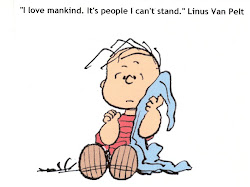During graduate school in the 1970s, my wife and I had a number of albums (yes, vinyl LPs) that were part of a series of easy listening music – probably produced by Living Strings or 101 Strings or some such record series. We used them mostly for background music at suppertime as I recall. One album consisted of instrumentals of popular British pop tunes, probably including some songs of Petula Clark – AVI’s favorite! A few of the tracks had sound effects woven into the tracks, or maybe separating musical tracks, and in one place you heard the clip-clopping of horse hoofs on cobble stones and a British bloke calling out like a town crier. But with such a thick British accent you couldn’t understand his words. And that was after 10 years of learning to decipher Mick Jagger.
At that time we were friends with a couple who had recently emigrated to Newfoundland from the UK for the better jobs that Canada had to offer – she British, he a Scot. So on one occasion when we had them over to our apartment for dinner or just drinks, I played that part of the album with the “town crier” and asked them to interpret. They couldn’t understand the guy’s words either! But they offered that it sounded very much like the call of a rags-and-bone man. I of course said, “Say what?” Our friends explained that a rags and bone man went from neighborhood to neighborhood in a horse drawn cart (traditionally) purchasing used materials from people for recycling – a junk man that came to your door.
Here’s Wikipedia’s take on rags-and-bone men:
Historically the phrase referred to an individual who would travel the streets of a city with a horsedrawn cart, and would collect old rags (for converting into fabric and paper), bones for making glue, scrap iron and other items, often trading them for other items of limited value.
They would use a distinctive call to alert householders to their presence, sometimes also ringing a hand bell. The call was something similar to "rag-and-bone", delivered in a sing-song fashion. Long usage tended to simplify the words, for instance down to "any raa-boh", even to the point of incomprehensibility, although the locals could easily identify who was making the call.
The rag-and-bone men were an important component of society before automotive transport. Householders had limited ability to travel to collection points, so the various customers for rags, bones, and such materials relied on the rag-and-bone men to supply some of their materials. The increasingly widespread use of cars made these dealers unneeded in many areas.
Once the world became more mechanized, some rag-and-bone men traded their horses for a lorry or pickup truck. Other social changes, such as the tendency for all members of a household to work outside the house, not to mention higher levels of traffic, made casual street-by-street pickup unworkable.
Focusing predominantly on scrap metal, these men still appear almost on a weekly basis in many parts of the Black Country as well as other parts of the West Midlands. They also often make heavy use of telephones being called on a case-by-case basis to collect an old appliance such as a fridge, sometimes for a small charge.
In the UK a popular comedy television series centered around a family-run rag and bone business. The show was called Steptoe and Son. Of course when Hollywood Americanized it for TV here it became Sanford and Son.


1 comment:
We saw something similar in Bucharest in 2001. I think it is mostly gypsies who do the job there. But it was horse-drawn, weaving through the back alleys instead of the streets.
Post a Comment